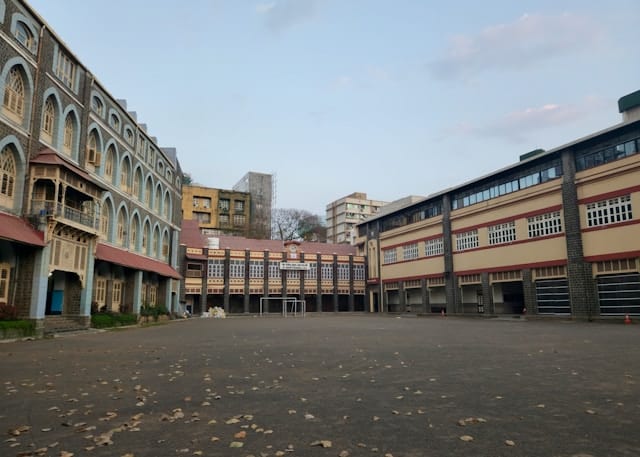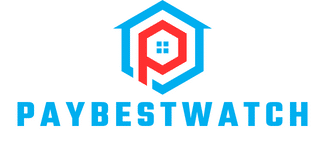How to Assess the Impact of Local School Quality on Residential Real Estate Values?

As you contemplate purchasing a new house, numerous factors may be on your mind. From the number of rooms and internal facilities to the surrounding environment and of course, the price. However, there’s another equally crucial element that might not be at the top of your list but can significantly influence the value of your property. We’re talking about the quality of local schools in your area. In this article, we’ll delve deep into understanding the impact that local school quality has on residential real estate values, and how you can assess this correlation firsthand.
The Connection Between School Quality and Housing Prices
The association between school quality and housing prices is one that has been recorded and acknowledged for a long time. The influence of high-quality education in the surrounding area of a property can’t be overlooked. It is a determinant that can dictate the price and value of homes.
Avez-vous vu cela : What Are the Effective Methods for Soundproofing High-Rise Residential Buildings?
Research has consistently shown that many homebuyers are willing to pay a premium for homes in areas with highly rated schools. Here’s why: good schools are often seen as a reflection of a good neighbourhood. Parents desire the best for their children, including top-notch education. Consequently, they’re willing to invest more in housing to secure access to high-quality schools for their offspring.
How to Evaluate the Quality of Schools?
When considering the quality of schools in a prospective neighbourhood, you must go beyond just looking at overall ratings. While it may seem convenient to depend solely on popular ranking platforms, it’s crucial to delve into the specifics.
A découvrir également : How to Leverage Community Investment Funds for Real Estate Development Projects?
Start by looking at academic performance, but don’t stop there. Check the curriculum the schools follow, teacher qualifications, student to teacher ratio, and graduation rates. Also, consider extracurricular activities offered, facilities, and overall student happiness.
It’s also beneficial to check out reviews from parents and students. They can provide a firsthand perspective on the school’s environment and quality. Visiting the school and talking to the principal and teachers can also give you a valuable insight into the school community, its values, and the quality of education provided.
Measuring the Impact of School Quality on Property Prices
After assessing the quality of schools in a neighbourhood, the next step is to understand how it translates into property values. Generally, higher school quality equates to higher property values. However, quantifying this impact could be a bit tricky.
You can start by comparing house prices in neighbourhoods with similar features (like transportation, infrastructure, safety, etc.) but differing school quality. Notice the price difference? This could be attributed to the difference in school quality.
Also, take note of housing prices trends over time. Areas with improving school performance often see a corresponding rise in property prices. Meanwhile, districts where school quality is declining may experience a drop or stagnation in housing prices.
Leveraging School Quality for Real Estate Investment
Real estate investors, whether they’re buying homes for rental or resale purposes, can greatly benefit from understanding the impact of school quality on property values. School quality is a stable and predictable factor, making it a valuable tool in real estate investment decision making.
Investors should consider school quality when selecting areas to invest in. Areas with high-quality schools tend to attract families and have a higher demand for housing, which could translate into higher rental income and property values. Conversely, investing in areas with poor schooling might not yield substantial returns due to lower demand.
Influence of Public and Private Schools on Real Estate
The quality of both public and private schools can impact housing prices. However, the impact may vary. High-performing public schools often boost property values in the surrounding areas since they’re accessible to all residents. On the other hand, top-rated private schools can also contribute to higher property values, but their influence might be slightly less since their access is restricted to those who can afford the tuition.
In the end, whether it’s a public or private school, what matters is the quality of education provided. As a prospective homebuyer or real estate investor, understanding this dynamic can help you make more informed and profitable decisions.
Examining Variations in School Systems and their Impact on Real Estate
There is no one-size-fits-all when it comes to school systems. The quality and impact of schools can vary significantly even within the same district. This variation can influence real estate prices, as different buyers may prioritize different aspects of a school system.
For instance, some parents may prioritize a school district known for its excellent special education services or a robust arts program, while others might look for schools with top-notch sports facilities or advanced placement courses. The presence of such specialized programs in a school district can influence property values positively.
Furthermore, some buyers may give weight to schools that showcase diversity, integrate technology in the classroom, or implement progressive teaching methods. Therefore, understanding the unique features of a school system, whether it’s a public school or a private one, can give you an edge in predicting housing values in its vicinity.
Data such as standardized test scores can help evaluate a school’s academic performance. However, remember that they represent only a slice of the school’s overall quality. Other factors like student-teacher ratio, teacher qualifications, extracurricular activities, and overall student satisfaction are as crucial as test scores.
The impact of school quality on real estate is not just confined to the present. An area with a consistently improving school system is likely to experience a corresponding increase in property prices over time. Conversely, a declining school system could lead to a drop or stagnation in property values.
Conclusion: Harnessing the Power of School Quality in Real Estate Decisions
The quality of local schools can significantly impact residential real estate values, making it a vital consideration for homebuyers and real estate investors. The relationship between school quality and housing prices is based on several factors, including academic performance, teacher qualifications, student-teacher ratio, and other unique features of the school system.
When assessing the quality of schools, go beyond just looking at overall ratings and dive into the specifics. Reviews from parents and students, visiting the school, and speaking with the staff can provide valuable insight into the school’s environment, the quality of education provided, and its impact on property prices.
However, understanding the impact of school quality on real estate values is not just about assessing current performance. Keeping an eye on the trends, such as improvements or declines in school performance, can help predict future property values and make informed real estate decisions.
By understanding and leveraging the impact of school quality, both homebuyers and real estate investors can make more informed decisions, resulting in higher satisfaction and potentially greater financial returns. Whether you are a parent keen on ensuring quality education for your children or an investor looking to maximize your returns, the quality of local schools is a crucial factor that can’t be overlooked.
